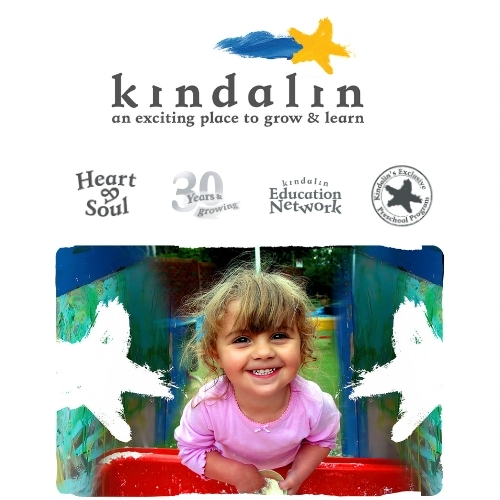While there is no denying good self-esteem is important, in recent years there has been an idea that parents can ‘give’ their child high self-esteem, and that this will lead our next generation to be both happier and high achievers. This has led to a wave of ‘lawnmower’ parents, clearing the way for their child to excel in sport, academics and any other endeavour.
But the research suggests that protecting our children from frustration (ensuring they succeed, giving them every advantage, removing any obstacles for them) and overindulging them (with too much praise) may be more likely to lead to emotional fragility, neuroticism and narcissism.
This may be because having high self-esteem often depends on being successful and on making judgements about yourself or others. In any community of mums (just spend an evening on Facebook) a quick scroll will reveal post after post about mums judging themselves or others, or trying to source information to decide the answer to the big question: “Am I being a good parent or a bad parent?”. Judgements means that sometimes we may feel superior, but if we don’t meet our own standards (or the standards of those we ask), we may feel terrible about ourselves.
Negative evaluations can lead to self-criticism – most women are harsher and much more cruel to themselves than they ever would be to a friend – and it can lead to feeling hostile towards others, anxiety, low mood, low energy levels, and even to self-handicapping strategies, such as procrastination – none of which help anyone reach their full potential. It also strips the enjoyment from parenting when you continually berate yourself for not being ‘enough’.
Luckily, the evidence suggests that all the benefits of having high self-esteem can be achieved by being self-compassionate. Not only that, but the research suggests that the negative aspects of high self-esteem, such as narcissism, are likely to disappear as self-compassion increases.
In fact, research studies find that people who practice self-compassion (self-kindness) experience enhanced self-esteem, increased well-being (they are happier), and are able to adapt more easily to new experiences (they have greater resilience).
So yes, you are reading this right… Self-compassion, in contrast to self-esteem, is not a way of judging ourselves positively or negatively: It’s about relating to ourselves kindly and embracing ourselves as we are, flaws and all. And this somewhat effortless sounding kindness is also associated with fewer negative states like depression, anxiety, stress and negative body image AND more positive states like happiness, life satisfaction and optimism.
So what’s stopping you being kind to yourself?
According to Neff, (with Leary, one of the big names doing this research), the most common fear about becoming self-compassionate is that it will lower performance standards and encourage laziness. And yes, being kind to yourself does sounds indulgent and a bit soft doesn’t it? It does… but research has found those high in self-compassion tend to have higher standards, work harder and take more personal responsibility for their actions. So even if it seems indulgent, the evidence suggests engaging in self-kindness won’t lead to evenings in front of the TV with a bucket of ice cream – but that it’s more likely to foster resilience, courage, energy and creativity!
And if that doesn’t win you over, consider this…. the way we respond to our child’s successes and failures, and the way we model responding to our own successes and failures helps to form the internal dialogue or self-talk our children develop, their self-image, and their world view. It’s important for children to realise that life is comprised of ups and downs, and that failure or mistakes are as much a part of life as success. Self-compassion is about how you relate to yourself – and that’s important when times are tough. Failure is a part of life and how we handle it determines whether we quit or try again.
So, how can parents effectively teach their children a skill when many of us haven’t mastered it ourselves?
How to be self-compassionate
1. Treat yourself as you would treat a good friend in the same situation
This means letting go of harsh judgments and tapping into self-encouragement, sympathy, patience, and gentleness. Embrace failure or mistakes as a learning opportunity for self-compassion.
2. Recognise shared common humanity
Despite what we may think, our feelings and experiences are not entirely unique. All humans go through hardship, and experience pain, frustration and disappointment. Failure is normal, and everyone in the world is imperfect. Instead of letting self-esteem judgements such as “What’s wrong with me “or “I’m not good enough” take over, try a self-compassionate approach: “How can I be kind to myself? What support do I need to cope?”
3. Practice mindfulness
This means paying attention to, and becoming aware of, how you talk to yourself and how you treat yourself. Many people suppress, ignore or get carried away by their thoughts and feelings. A generation ago, the way your parents responded to your successes and failures shaped your own self-image and view of the world. Take some time to notice whether your habitual patterns are how you want to act or whether you’d prefer to respond differently. Our brains are very capable of change at any age, should we choose to let them.
Science says treating ourselves kindly is one of the most important life skills to learn. Humans are born genetically wired to respond to warmth, gentle touch, and soft vocalisations. If we can provide that kind of self-hug and calm reassurance to ourselves, we actually reduce levels of stress hormones and boost the feel-good ones…Self-compassion not only feels good when we use it ourselves, it’s one of the biggest skills we can teach our children, and one of the most effective ways to increase their wellbeing, at the same time as our own.
























